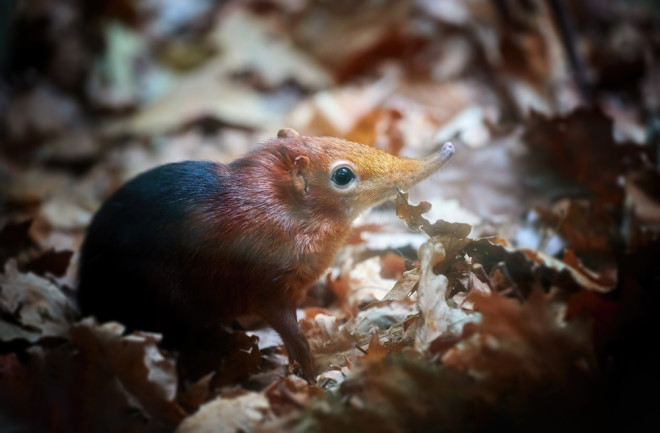Scientists hypothesize from genetic studies that, more than 65 million years ago, humans came from squirrel-like, nocturnal animals that lived in trees and weighed less than 200 grams. Up until recently, scientists also suggested that this primate ancestor was a primitive and solitary mammal that lived in the shadow of the dinosaurs.
A new study published in the journal PNAS, however, sheds new light on the social organization of this prehistoric creature: namely, that most primate ancestors were living not in solitude, as previously believed, but in pairs even 65 million years to 70 million years ago. These results challenge earlier assumptions on the social development of primate ancestors and also prove that solitary living in primates is not an original primitive state, but a social state that evolved later on.
“This is especially important because previous studies always tried to explain the big evolution of so-called social monogamy out of a simple solitary living form, and now we showed that this kind of argument is not correct, because pair-living is actually ancestral,” explains Carsten Schradin, director of research at the CNRS in Strasbourg and an author of the study. “This challenges our understanding of mammalian and human social evolution.”
Mapping the Evolutionary Tree of Primates
For this research, scientists studied primate species that exist today to infer what a common ancestor may have behaved like. They collected data from previously published mammal studies from fieldworkers who spent years — if not decades — observing animals in their natural environment and studying their social composition.
This social data was combined with a phylogenetic tree — also known as an evolutionary tree — as well as with data on the body mass of these ancestors estimated from younger fossils, and finally processed through a Bayesian phylogenetic model.
“With this combination of data, the model can make estimates. And so we asked it, what was the most likely form of ancestral social organization?” Schradin explains.
The model inferred that, though variable, the most likely social organization of primate ancestors was pair-living. This means that while some may have been solitary, most of our ancestors were living as couples even more than 65 million years ago.
Read More: Mammals Diversified Much More Rapidly 66 Million Years Ago
Why Did Primate Ancestors Live in Pairs?
Living in pairs towards the end of the Cretaceous age was likely a matter of life and death. Because our primate ancestors were most likely small endothermic creatures, they had to maintain their own body heat — a necessity that in Schradin’s words, is “energetically very expensive.”
“Large mammals live in groups to find food together and protect against predators, but for small mammals, the main reason to live in groups is to warm each other at night,” Schradin adds. “If you can huddle together and sleep together, you save a lot of energy.”
However, if the primate ancestor was anything like birds — where females hate females and males hate males — their options would have been limited to male-female pairs. “So if you wanted to cuddle with someone, the only possibility would have been a male with a female,” Schradin hypothesizes.
While today most primates live in groups with multiple males, Schradin says that this is the least likely ancestral form of social organization: “We believe that groups with multiple males is actually the scientific novelty that occurred late in primate evolution, long after the dawn of the dinosaurs.”
Read More: An Introduction to the History of Human Evolution
Future Studies on Mammalian Evolution
Schradin plans to lead a similar study that includes not just primates but all mammals, whose common ancestor dates back to 220 million years to 230 million years ago. In fact, the data for this study is already being processed, and the social organizations so far look relatively similar to that of primate ancestors.
“The interesting results we are getting out of these comparative studies is that if the ancestor was not solitary living, then solitary living must have evolved in mammals out of a pair-living or group-living ancestor,” he mused. “We now want to understand the cost and benefits of solitary living, and why solitary living was successful for so many mammals.”
Read More: Established Science Is Wrong About Mammalian Evolution, Study Claims
Article Sources
Our writers at Discovermagazine.com use peer-reviewed studies and high quality sources for our articles, and our editors review for accuracy, and trustworthiness. Review the sources used below for this article:

